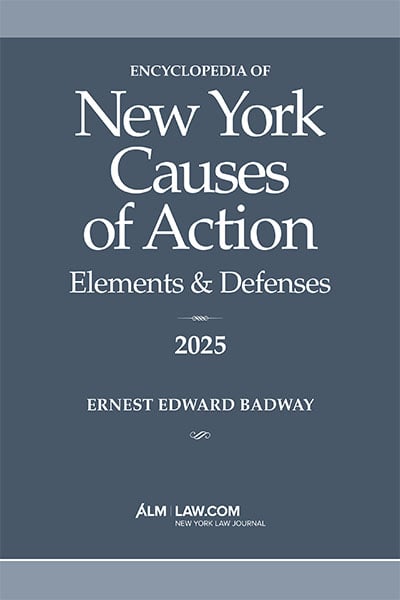0 results for 'New York'

Will England Accept That Digital Assets Are ‘Property’?
The author writes "To American lawyers it has been fairly obvious that digital assets are 'property' for legal purposes, but the English have not been so sure. In fact, England has been so not sure that recently it felt compelled to introduce legislation to help resolve the point. And yet even then, this proposed legislation would not actually confirm that digital assets constitute “property,” but rather just provide that it is not out of the question that they might."
Congress and Courts Are Considering Litigation Financing: Is Disclosure Imminent?
A federal rules committee last month agreed to look at whether to disclose litigation financing, and a bill is pending in Congress.

Law Firm Real Estate Strategy: Attorney Offices Are Out, Conference Rooms Are In
Law firms are navigating a paradigm shift in how they approach office space. With the rise of flexible workplaces, firms are finding that when their attorneys do come into the office, the main goal is to connect and collaborate with peers — and this shift has transformed how law firms address their real estate needs.
Section 1782 Practice Pointers From Recent Decisions
The authors state "Section 1782 (28 U.S.C. §1782) is an international litigation issue that this column has been writing about for decades. In today’s column, we provide some Section 1782 practice pointers based on a number of recent decisions."View more book results for the query "New York"



Chiesa Shahinian Bolsters Corporate Practice With 5 From Newark Boutique
“The bread and butter, the privately held midmarket client that spins off not only M&A work, but financing work, contract and commercial transactions, but also intellectual property, environmental, real estate, is the real value add here," Glenn Stein, chair of the corporate and securities group at Chiesa Shahinian & Giantomasi, said.
Trade Fixtures in New York Eminent Domain Cases—What Qualifies and How Are They Valued?
The author states "New York courts have consistently held that the proper method of valuation for trade fixtures is reproduction cost less depreciation. This means that each fixture item is valued based on the cost of reproducing that item as of the time of the eminent domain seizure, less the depreciation of such item, to arrive at its sound value."
The Empty Promise of ‘Dubin v. United States’
Congress enacted 18 U.S.C. §1028A to impose stricter penalties on aggravated identity theft, but its ambiguous language has allowed prosecutors to apply it broadly, often leading to disproportionate sentences for crimes not fitting the traditional understanding of identity theft. In their article, Andrew Mancilla and Robert Fantone discuss the Supreme Court’s decision in Dubin v. United States which aimed to curb this overreach.
Weil Partner Exits Raise Questions About Future Firm Leadership
Elizabeth Stotland Weiswasser and Ray Schrock, both among Weil’s top 10 rainmakers with significant books of business, were unwelcome departures, sources say. Weiswasser in particular was seen as a potential future leader of Weil.Trending Stories
Featured Firms
Law Offices of Gary Martin Hays & Associates, P.C.
(470) 294-1674
Law Offices of Mark E. Salomone
(857) 444-6468
Smith & Hassler
(713) 739-1250
More from ALM
- Legal Speak at General Counsel Conference East 2024: Match Group's Katie Dugan & Herrick's Carol Goodman 1 minute read
- Legal Speak at General Counsel Conference East 2024: Eric Wall, Executive VP, Syllo 1 minute read
- Legal Speak at General Counsel Conference East 2024: Virginia Griffith, Director of Business Development at OutsideGC 1 minute read
Resources

Leveraging Technology to Improve Employee Engagement and Client Satisfaction
Brought to you by CARET Legal
Download Now

How to Choose Your Legal Operations Software: Key Considerations and Expert Tips
Brought to you by DiliTrust
Download Now

Yearly Roundup: Strategic Insights for Law Firm Decision Making
Brought to you by CARET Legal
Download Now

Lex Machina Contracts: Commercial Litigation Report 2024
Brought to you by LexisNexis®
Download Now



